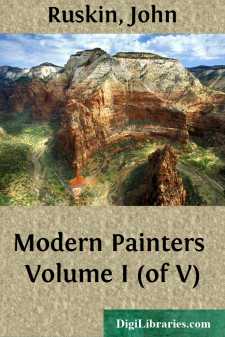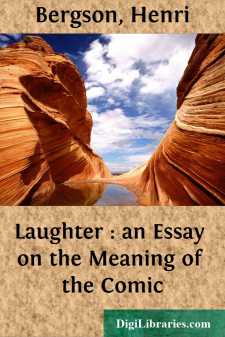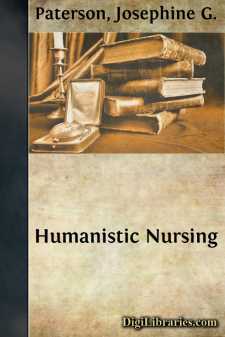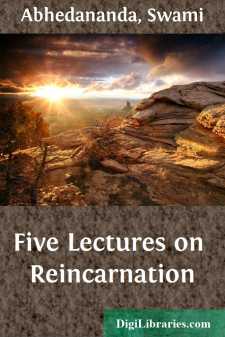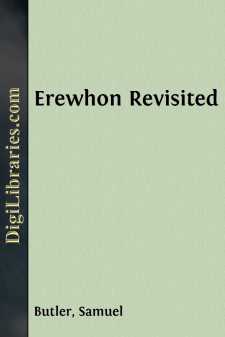Philosophy
- Aesthetics 11
- Eastern 1
- Ethics & Moral Philosophy 2
- General 30
- Hindu 2
- History & Surveys 3
- Logic 1
- Metaphysics 3
- Political 1
- Religious 7
- Social 3
- Taoist 1
Philosophy Books
Sort by:
by:
John Ruskin
CHAPTER I. OF THE RANK AND RELATIONS OF THE THEORETIC FACULTY. Although the hasty execution and controversial tone of the former portions of this essay have been subjects of frequent regret to the writer, yet the one was in some measure excusable § 1. With what care the subject is to be approached.in a work referred to a temporary end, and the other unavoidable, in one directed against particular...
more...
by:
John Ruskin
The work now laid before the public originated in indignation at the shallow and false criticism of the periodicals of the day on the works of the great living artist to whom it principally refers. It was intended to be a short pamphlet, reprobating the matter and style of those critiques, and pointing out their perilous tendency, as guides of public feeling. But, as point after point presented itself...
more...
by:
Vernon Lee
THE USE OF BEAUTY. I. One afternoon, in Rome, on the way back from the Aventine, the road-mender climbed onto the tram as it trotted slowly along, and fastened to its front, alongside of the place of the driver, a bough of budding bay. Might one not search long for a better symbol of what we may all do by our life? Bleakness, wind, squalid streets, a car full of heterogeneous people, some very dull,...
more...
by:
Henri Bergson
CHAPTER I THE COMIC IN GENERAL—THE COMIC ELEMENT IN FORMS AND MOVEMENTS—EXPANSIVE FORCE OF THE COMIC. What does laughter mean? What is the basal element in the laughable? What common ground can we find between the grimace of a merry-andrew, a play upon words, an equivocal situation in a burlesque and a scene of high comedy? What method of distillation will yield us invariably the same essence from...
more...
Out of necessity nursing, as a profession, reflects the qualities of the culture in which it exists. In our culture for the past quarter of a century nursing has been assailed with rapid economic, technological, shortage- abundance, changing scenes' vicissitudes. In the individual nurse these arouse turmoil and uncertainty. These cultural stirrings inflame that part of the nurse's spirit...
more...
I. Reincarnation The visible phenomena of the universe are bound by the universal law of cause and effect. The effect is visible or perceptible, while the cause is invisible or imperceptible. The falling of an apple from a tree is the effect of a certain invisible force called gravitation. Although the force cannot be perceived by the senses, its expression is visible. All perceptible phenomena are but...
more...
by:
John Armstrong
INTRODUCTION The essays on taste taken from the work of John Gilbert Cooper and John Armstrong and reprinted in this issue are of interest and value to the student of the eighteenth century because they typify the shifting attitudes toward taste held by most mid-century poets and critics. Cooper, who accepts the Shaftesbury-Hutchesonian thesis of the internal sense, emphasizes the personal, ecstatic...
more...
by:
Samuel Butler
CHAPTER I: UPS AND DOWNS OF FORTUNE—MY FATHER STARTS FOR EREWHON Before telling the story of my father’s second visit to the remarkable country which he discovered now some thirty years since, I should perhaps say a few words about his career between the publication of his book in 1872, and his death in the early summer of 1891. I shall thus touch briefly on the causes that occasioned his failure...
more...
by:
John Dewey
Chapter One: Education as a Necessity of Life 1. Renewal of Life by Transmission. The most notable distinction between living and inanimate things is that the former maintain themselves by renewal. A stone when struck resists. If its resistance is greater than the force of the blow struck, it remains outwardly unchanged. Otherwise, it is shattered into smaller bits. Never does the stone attempt to...
more...
Civility is beauty of behaviour. It requires for its perfection patience, self-control, and an environment of leisure. For genuine courtesy is a creation, like pictures, like music. It is a harmonious blending of voice, gesture and movement, words and action, in which generosity of conduct is expressed. It reveals the man himself and has no ulterior purpose. Our needs are always in a hurry. They rush...
more...



